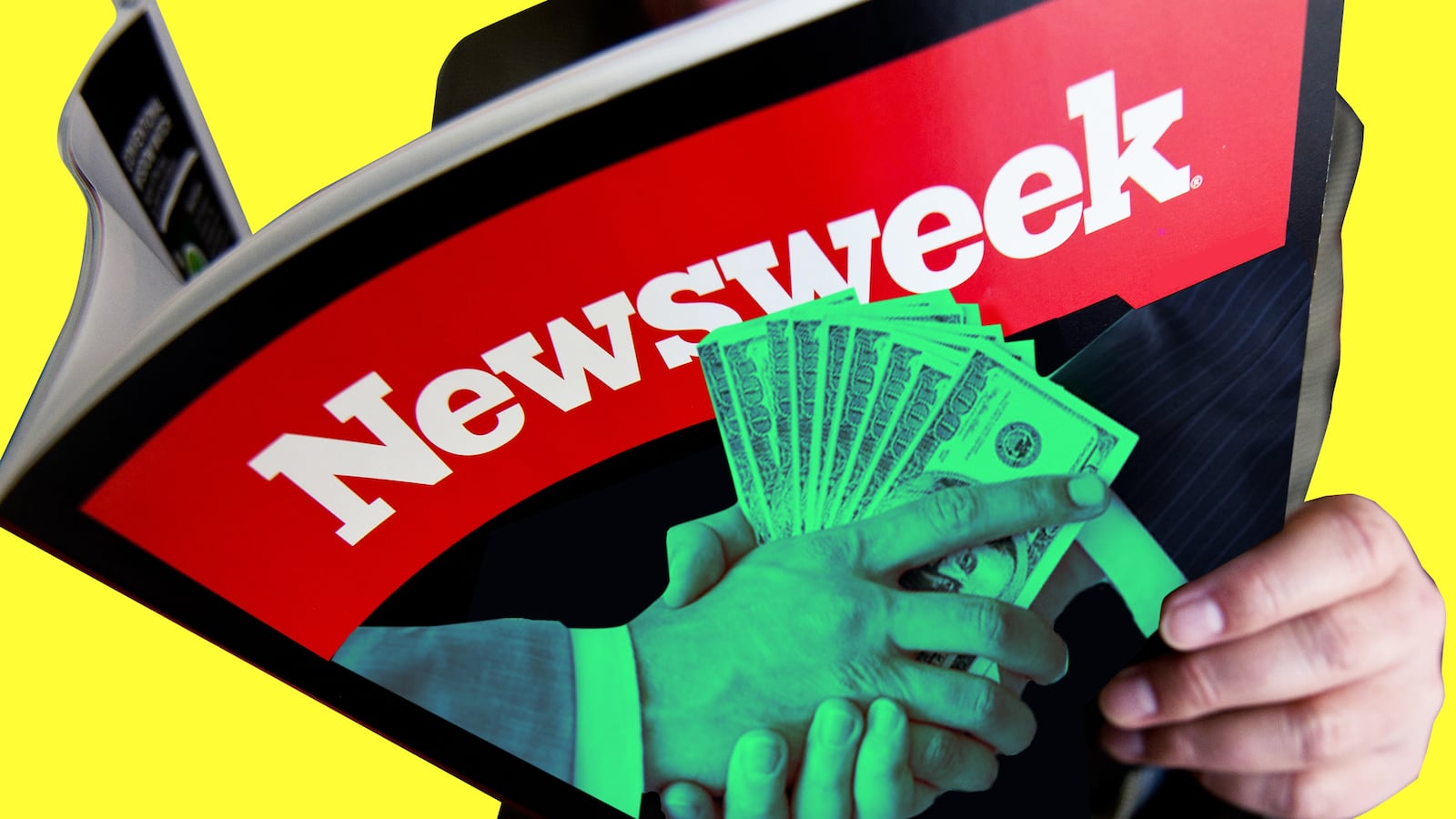During a private meeting with editors this week, a top Newsweek executive blamed his own journalists for the magazine’s recent turmoil and refused to answer whether the company committed financial crimes.
Newsweek Media Group interim Chief Content Officer Johnathan Davis took questions from editors for nearly 90 minutes on Wednesday, according to recording obtained by The Daily Beast, about firings and investigations that have engulfed the company.
Last month, the Manhattan District Attorney’s Office raided Newsweek Media Group’s headquarters in New York as part of an ongoing investigation into the company for potential financial crimes. On Monday, Newsweek Media Group fired editor in chief Bob Roe, executive editor Ken Li, and reporter Celeste Katz, who reported on the raid and recent allegations that the company engaged in traffic and advertising fraud.
“[The raid] led to the BuzzFeed article about the fake clicks, which you orchestrated,” breaking news editor Gersh Kuntzman said. “So you should be honest with everybody in this room: Are we running a money laundering operation? Are we evading taxes? You need to tell us that because we can’t work here if you’re a liar.”
Davis declined to answer directly, citing the D.A.’s probe.
“There’s an investigation going on right now that’s active,” Davis said. “And they’re going to come up with their own conclusions. And when that comes out, you’re going to know the answer.”
And though he would not say why Katz was fired, Davis said that Roe and Li were let go after they rebuffed management’s calls for Newsweek to stop reporting on the company’s finances.
A spokesperson declined to comment, saying the company does not comment on internal communications or personnel matters.
Davis, one of the co-founders of the company that bought Newsweek in 2013, acknowledged that he had been absent from the company for 18 months, and that he did not want to be there on Wednesday.
He said returned to serve as interim CCO to help “stem what’s happening” after CCO Dayan Candappa was put on leave following the revelation he was accused of sexual harassment at his previous employer, Reuters. (Candappa was reinstated on Friday following an investigation.)
Throughout the meeting, Davis claimed Newsweek’s reporting on the raid and other internal matters ruined a business deal abroad that would’ve “changed the course of our business.”
“The recent string of articles has done real damage to our business relationships, to our partners,” Davis said. “So there’s a larger business context.”
“Do you think that the articles we published did more damage than the fact that we were raided and accused of ad fraud and there was a sexual harassment story that came out and there were questions about the ownership?” one editor responded.
“Yes,” Davis answered moments later.
When editors asked whether they could review Newsweek’s past stories about recent turmoil to find original details that allegedly harmed the business deal, he dodged.
“I don’t think that’s necessary,” Davis said.
When Newsweek editors attempted to push back, Davis grew increasingly defensive, saying Newsweek’s own journalists had written “hit pieces” which “attacked” the company, adding “if we had integrity we should be defending the company.”
“Why do we need to do this necessarily to ourselves?" Davis asked. "In the name of integrity?"
The interim CCO said that Roe and Li had overseen the degradation of Newsweek’s content, citing a recent widely criticized piece that argued why Hillary Clinton could serve out Donald Trump’s term as president.
Newsweek editors pushed back, saying that the article was a partial result of the traffic goals that management forced reporters and editors to meet.
"What you're doing is bullshit," editor Jason Silverstein said about an hour into the meeting. "You don't understand journalism, and so you're trying to pick apart these things that you think we should've done, and you're trying to convince us that it's somehow our fault."
Silverstein left the company on Thursday.
Indeed, throughout the meeting, Davis expressed ignorance about basic journalism practices.
He wondered aloud why reporters had called a New York state assemblyman to inquire about the company’s owners, and said Newsweek’s journalists had “harassed” his wife by calling her seeking comment about Newsweek’s woes. His wife is the president of Olivet University, which is reportedly being investigated as part of the D.A.’s probe, and was founded by a leader of an enigmatic church.
When Davis complained that management’s perspective wasn’t represented in their Newsweek’s stories about the company, editors repeatedly explained that reporters had reached out.
"Why can't we just walk down to Dev's office?" Davis asked at one point, referring to CEO Dev Pragad.
"Dev was contacted for the story," one editor replied.
Davis also asked why Newsweek cited Mother Jones, which investigated the company’s ties to Olivet University in 2014, and the New York Post.
“You have to understand: No one has looked there until you guys published that,” Davis said, referencing Mother Jones.
“That is not true,” multiple editors responded simultaneously, adding that citing other sources is “common practice” in journalism.
As the meeting progressed, editors became increasingly agitated by Davis’ continued dodges. One editor said that staff had “barely learned anything” from the meeting other than that Davis was “not credible.”
“What we know now is the people we’re working for right now are not credible and do not understand journalism at all, and apparently have no plan for going forward,” Silverstein said. “And you’ve given us not a single reason why anyone should continue working for you.”
After 80 minutes, Davis concluded Wednesday’s meeting by suggesting that editors who disagreed with him should find new jobs.
"I've said what I wanted to say, and if you guys aren't on board with that then, you can make up your own mind," Davis said.






